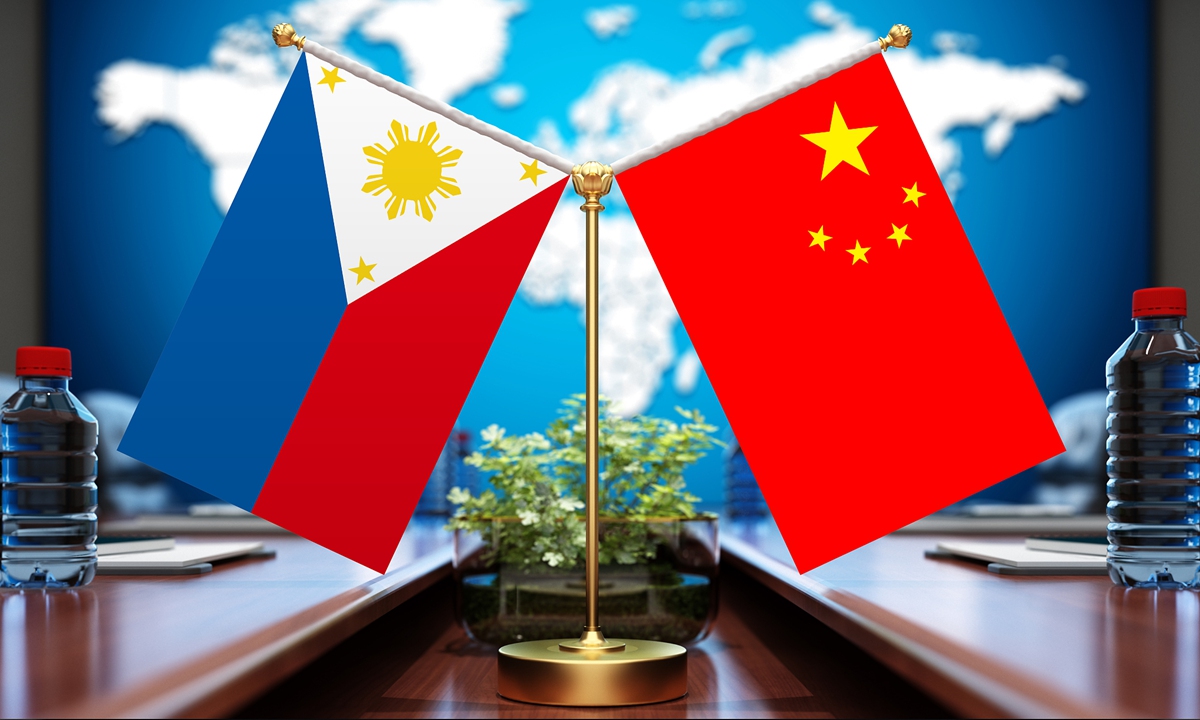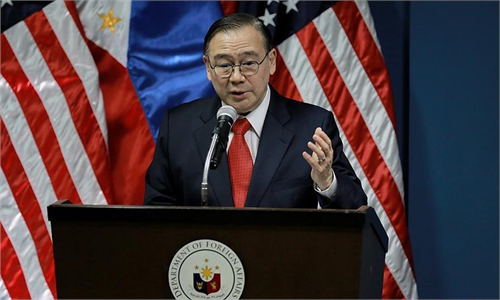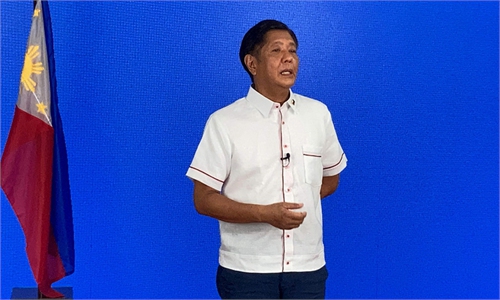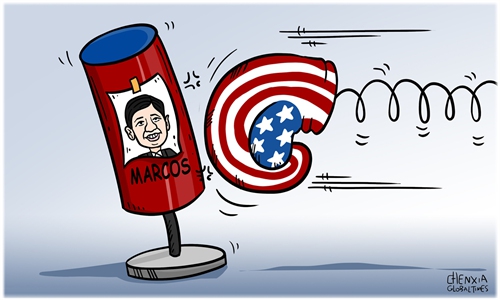
China and Philippine Photo: CFP
Further development of China-Philippine relations is expected during the new Philippine administration under the leadership of Ferdinand Marcos, Jr., Chinese analysts said after Chinese President Xi Jinping spoke on the phone with Marcos on Wednesday on bilateral ties and regional development.
Xi congratulated Marcos, Jr. again on his election as President of the Philippines.
Xi noted that China always gives priority to the Philippines in its neighborhood diplomacy and maintains continuity and stability in its friendly policies toward the Philippines.
He stressed that Marcos has participated in and witnessed the development of the China-Philippine relations, calling Marcos, Jr. a builder, supporter and promoter of China-Philippine friendship.
The phone call showed China's particular attention to China-Philippine relations and was a way to deliver sincere congratulations to Marcos, Jr. on his election, Qian Feng, director of the research department at the National Strategy Institute at Tsinghua University, told the Global Times on Wednesday.
The Marcos family has historically been friendly to China, Zhuang Guotu, head of Xiamen University's Southeast Asian Studies Center, told the Global Times on Wednesday, saying Marcos, Sr., former Philippine president and father of the Philippine President-elect, was the first to promote China-Philippine diplomatic relation, which was established under his presidency.
China and the Philippines are separated only by a strip of water and share common interests. Although the two countries have disputes over the South China Sea issue, they have maintained a stable relationship for decades. In recent years, the friendship between China and the Philippines has also improved, said Zhuang, concluding that he believes better bilateral relations are expected after Marcos, Jr. takes office.
The Chinese president also pointed out that the two sides have effectively managed differences through dialogue and consultations in the past, promoting cooperation on various matters and achieving fruitful results in bilateral relations.
China is ready to expand and strengthen the existing cooperation on national economy and people's welfare with regard to infrastructure, agriculture, energy and education, as well as the anti-COVID-19 fight and post-pandemic recovery. This approach will foster new growth areas and promote development and revitalization of the two countries and the region, he said.
China will, as always, actively support and assist the Philippines in its economic and social development and work with the Philippines to strengthen strategic communication and coordination over major international and regional issues to safeguard peace and development there, Xi added.
Xi stressed that the world has greatly changed and we are now in times where new challenges to peace and security that have no precedent in history have appeared. The Chinese president said that he hopes the Philippines will continue to pursue an independent foreign policy.
Last week, the US and ASEAN held a special summit in Washington, DC. As this year marks the 45th anniversary of the ASEAN-US Dialogue Relations, the summit was aimed at strengthening the two sides' cooperation. However, Qian believes the summit served as part of US' Indo-Pacific strategy to secure global leadership.
The victory of Marcos, Jr. in election is a positive sign in China-Philippine relations that made the US quite anxious, Qian said.
Given that the Philippines was once a US colony, it shares a defense alliance with the US and that it has strong pro-US forces among the military and elite class. Marcos, Jr. has to balance the country's relations with the US while developing an effective pragmatic cooperation with China, Qian said.
Marcos, Jr. said the new Philippine government will make China-Philippine relations a priority in the country's foreign policy and is ready to strengthen exchanges at all levels and deepen cooperation with China in economy, trade, infrastructure, energy, culture and education.
A recent survey conducted by the Global Times Research Center and the Center for Chinese International Strategy Studies of Renmin University of China showed that nearly 80 percent of Chinese respondents think the US is the biggest disruptor of relations between China and ASEAN members, but about 90 percent considered China-ASEAN ties as friendly and over 75 percent hold a positive attitude toward their future.




